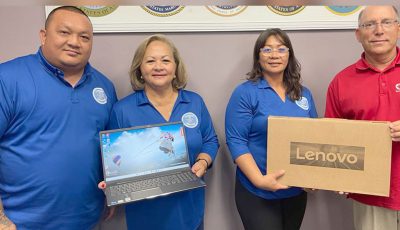Red Cross going out to villages to do case work
Exactly a month after the devastation of Typhoon Soudelor on Saipan, there are still people who are suffering and have yet to receive help from various agencies.
“Things are getting better for everyone in the island,” American Red Cross-NMI chapter executive director John Hirsh said. “But I do think that there are a lot of people still suffering.”
The ARC has received over 9,000 calls from households seeking assistance and they continue with their casework.
According to Hirsh, they were able to meet the needs of over 5,000 of those who called their office but the rest are still to be assessed.
For some days now, the Red Cross is doing fieldwork on the cases that they are handling. Instead of interviewing heads of households in their chapter office on Airport Road, they have been going to meet people in their homes.
“What we’re doing is we’re calling everyone up and saying we’re going to be at your home,” Hirsh said.
“Instead of interviewing them at the chapter, we’re going out in their homes and interviewing them there. We’re doing kind of what we call casework and outreach,” he added.
ARC is working on about 200 cases every day. Hirsh said they have about 10 teams who are going out to talk to people who need help.
He noted that there weren’t a lot of cases where the Red Cross goes to a home and nobody is there.
“We have to also figure that there might be duplicates, people calling back for help,” Hirsh said.
Asked about the differences in the items that they are giving away, Hirsh said there are times when they have more to give out and times where in they have the basic needs.
“As our shipments come in from the mainland, sometimes it goes up and down a little bit. Like maybe for two days we’ll have T-shirts, we’re going to give out the T-shirts. Then we’ll get some buckets, and all of a sudden we have buckets for a week. So it’s possible that some of the extra items have changed.”
Despite this, Hirsh said they are consistent with much needed supplies such as toilet supplies, hygiene kits, rice, canned food, and ramen.
Hirsh said more supplies such as tarps and buckets are coming in.
“We have six 40-foot containers that just arrived this week,” Hirsh said.



























